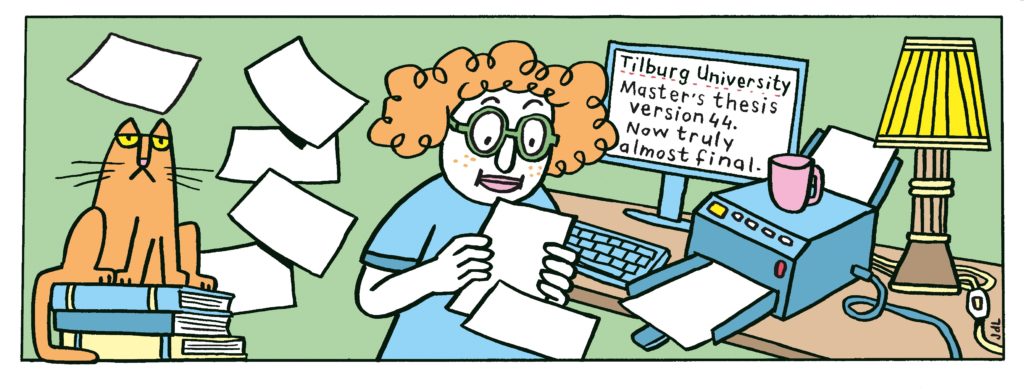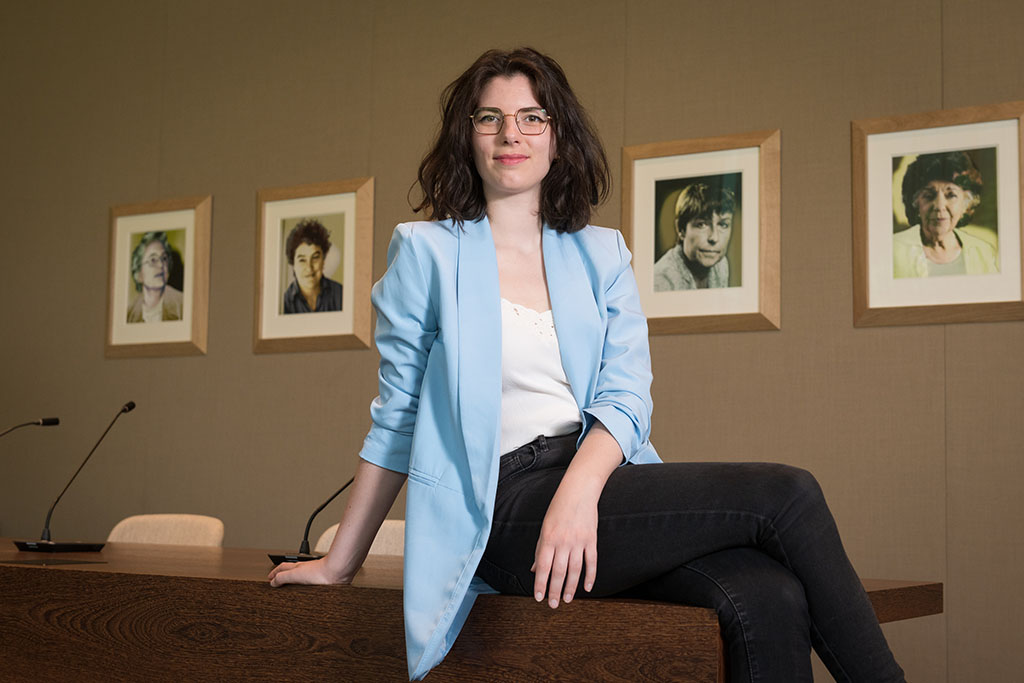Gratitude silences women: ‘Don’t negotiate, just be glad you got a chance’
Voting rights, obtaining a PhD or a leadership position in the workplace? ‘Women should be grateful for things that men take for granted,’ former philosophy student Renate Krabbendam explains in her Master’s thesis. ‘Women who are not grateful are labeled ‘arrogant,’ ‘ice queen,’ or ‘bossy.’’

Where did the inspiration for your thesis topic come from?
‘In 2020, legal historian Madeleijn van den Nieuwenhuizen gave a speech (in Dutch) at the National Women’s March in Amsterdam. She argued that women are frequently told to be ‘grateful’ for the opportunities they have been given in life. According to her, this silences women and stands in the way of real feminist progress. Her speech got me thinking and formed the basis for my research.’
What is your thesis about?
‘My thesis is about the philosophical concept of ‘affective injustice.’ That is an injustice against a person as an emotional being. Take, for example, the anger of a woman of color. When she is angry about something—for example, because she faces sexism or racism—the underlying reason for her anger is not considered. Instead, she is immediately labeled as a hysterical black woman.
‘That’s unfair. Because when other people are angry about something, they do look at the underlying reasons. Take, for example, the farmers, who have made themselves quite vocal. Everyone knows that farmers are angry about the nitrogen measures. They were not immediately reduced to ‘irrational, angry men.’
‘’When comparing these two examples, it is striking that emotion rules around anger are unevenly distributed. This applies not only to anger but also to another emotion: gratitude. In my thesis, I argue that ‘affective injustice’ is, therefore, not only related to anger but is a broader concept. It is mostly women—not men—who suffer from this. They should be ‘grateful’ for things that men take for granted.’
Where does that manifest itself?
‘That is very subtle. Of course, women are not asked all the time to be grateful. Still, there is an implicit expectation of some kind of gratitude from women. For example, a woman is regularly reminded of a situation in which she could have had it worse. For example, a period in the past when women were not allowed or able to do certain things: ‘Women in time X or country Y have it worse than you. In other words, be thankful for everything you have now because it is not a given.

‘Similar gratitude is also expected of a woman who is assigned a managerial position, for example. Her situation could also have been different: she should be happy that ‘as a woman’ she is preferred to a male colleague.’
What did your research show?
‘One of my main conclusions is that this ‘gratitude’ can cause you to be ‘content’ with your situation. For example, a woman who is grateful for a particular opportunity in the workplace is less likely to negotiate her salary: after all, she should be ‘happy’ that she got this opportunity in the first place.
‘Yet by no means all women simply show their gratitude at all times. Some dare to express that they are entitled to certain opportunities, such as a promotion in the workplace. Funnily enough, such women are sometimes punished for not showing the desired gratitude. They are labeled ‘arrogant,’ ‘ice queen’ or ‘bossy.’ This is not likely to happen to a man in a similar situation. He is ambitious, confident, and a hard worker.’
Do you see parallels between your thesis research and the curtailment of women’s rights in Poland and America?
‘I am not sure if there is a causal relationship between affective injustice and the curtailment of women’s rights. That would require empirical research. But my instinct says there is a connection.
‘Indeed, societies around the world are still asking women to be grateful for basic rights obtained. Indirectly, by doing so, you argue that basic rights for women are not self-evident. And when something is not self-evident, it is vulnerable. This may limit certain basic rights—such as the right to abortion or women’s right to vote.
‘As long as rights are not yet self-evident and can be encroached upon, we must climb the barricades. For that, women also need men. After all, they make up the other half of the world’s population.’
Do you have a tip for upcoming thesis writers?
‘It helped me tremendously to have a curious attitude throughout my thesis period. This made me look forward to getting back to work every time. When you feel like you already know and have read everything about your topic, it quickly becomes boring. Whereas lingering curiosity keeps it enjoyable. When that’s the basis, the rest comes naturally.’
Renate Krabbendam is aware that identity is not binary and the intersections between different forms of identity affect privilege and injustice.
Master’s thesis
A literature review, experimenting in the lab or getting into the swing of things with SPSS? Tilburg University students write the most diverse theses. In the Master’s thesis section, Univers highlights one every month.
Author: Renate Krabbendam
Title: Affective Injustice in Positive Reactive Attitudes: The Demand for Women’s Gratitude
Supervisor: Dr. A.T.M Archer
Grade: 9.5
Translated by Language Center, Riet Bettonviel






